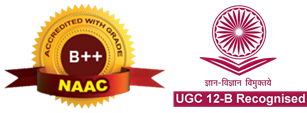1. Responsiveness towards learners:
- The institution has a dedicated online/ offline helpdesk/ toll free no.:
The University has a dedicated online/offline helpdesk/ toll fee no. for its learners. The information related to all these three is uploaded on the website of the University. For offlineRedressal of grievances, Grievance Redressal Cell has been established in the University and it is functional since a long time. The complaints received from the learners are properly followed-up to the satisfaction of the complainants. In order to pay special attention to the complaints of women and members of the marginalized sections of the society teachers representing women and teachers from marginalized communities are included in this cell. Some of the learners do however, make inappropriate complaints and being dissatisfied they log-on their complaints on the other channels as well, but, eventually these are addressed by the University only.
Similarly, online system is also very responsive and the University has the dedicated toll free lines operating under IVRS.
http://www.uou.ac.in/contact
http://www.uou.ac.in/eos - Grievance Redressal mechanism is in place:
The online system of grievance redressal of this University is very unique, because since a long time the University has followed a unique ticketing system wherein, the moment an online complaint/ grievance/ query is received, a ticket is generated automatically and the complaint/ grievance/ query is transferred to the concerned person for its resolution. Till it is resolved, the ticket continues to show that the complaint/ grievance/ query is still un-resolved and immediate steps are taken to resolve it. Thus, usually all the genuine complaints/ grievances/ queries are redressed in a systematic manner. Over the years the University has found this system to be very useful and learners/ stakeholders are also satisfied with this system of online redressal of grievances.
- Institutional system of learner feedback is in place:
The system of getting feed-back from its learners and introducing necessary improvements has been in place in the University since a long time, but its formal shape has emerged only recently when a regular process of taking feedback and analysing it has begun. During face-to-face interactions with the learners, say, in the mandatory workshops and the mandatory practical classes, learners are requested to submit their feedback. It is finally submitted to the coordinator who analyses these feedback sheets or online feedback (whatever the case) and suggests the corrective actions to the authorities of the University. It is relevant to mention that in many programmes of study this practice is being carried out. Apart from these workshops or practical sessions the feedback is collected by LSCs and it is also sent to the University for further action. Thus, the University has a well-defined institutional system of learner feedback.
- Any other:
2. Accountability:
- Meeting of all the statutory bodies are held as per statutory provisions:
In the University there exist all the statutory bodies like Board of Studies (BOS), School Board, Finance Committee, Recognition Board, Planning Board, Academic Council, and Executive Council. There are a few other bodies mentioned in the Statutes but the above mentioned bodies are the main administrative bodies of the University. All the meetings are held regularly to ensure accountability in administration of the University, and to ensure that the University functions strictly as per the Statutes. The Hon’bleChancellor, H.E. the Governor’s Office is kept updated about all the meetings of the E.C. Regular monthly reports containing documentary and photo-evidences are sent to Govt. It helps in continuous monitoring of accountability on part of University. Similarly, the State Government is also informed about this functioning as per the provisions of the Statutes. Representatives of the State Govt. attend various meetings of the University (Finance Committee and Executive Council).
- Auditing and budgeting is carried out as per rules of the State Government:
In the University all the accounting functions are online; hence, the accounting practices are also easier and automated. The system of internal check and internal auditing is in place. Proper budgeting is done as per the rules and provisions of the State Government, in this regard. Further, the modern budgeting for educational institutions also supplements the stipulated budgeting. The University has appointed a CA firm to carry out its annual auditing. The audit reports are placed in the meetings of the Executive Council and deliberated upon. Further, the audit objections are noted and resolved through follow-up actions.
- All procurement is done as per the defined process:
The procurement process of the University is as per the Financial Handbook of the State. The University has a purchase committee which meets regularly and the procurements are made through the GEM portal. The system of procurement is very transparent and bound by rules of the Government. Tendering process is also carried on through e-tendering to ensure transparency and accountability.
- Academic calendar is being followed strictly:
In every academic year, in the meeting of the Admission Committee, the Academic Calendar for the concerned academic session is proposed. Later, it is discussed in the other statutory bodies of the University and approved. This Academic Calendar is made public through website and prospectus and it is circulated through e-mail amongst all the stake-holders. Later, throughout the academic session it is followed in letter and spirit, thereby, ensuring academic accountability of the University.
- Any other:
3. Transparency:
- Proper sharing of information with the concerned stakeholders:
Information related to each and every aspect related to functioning of the University is uploaded on the website of the University, e.g., basic information related to the University, admission notice, status of book distribution, assignments, minutes of all the meetings, examination notices, including result and minutes of various meetings, etc., are all displayed on the website of the University. The website is very properly maintained and it is updated at regular intervals so that each and every information related to the University is shared with all the concerned stakeholders. Further, the University keeps sending bulk SMS and e-mails to the learners to update them about all the important information. Information in the news-papers is also published, as and when required. The individual Departments/ Schools have their blogs and the learners keep interacting through the blogs as well. Similarly, RCs and LSCs also spread information amongst the seekers and direct them to refer to the website of the University. All this process of academic administration leads to full-disclosure and complete transparency.
- Transparent system of monitoring and evaluation:
The monitoring of internal and external functions of the University is a continuous process and for this purpose separate mechanisms are followed, say, regarding internal functions relate to monitoring of funds, procurement and distribution of books, examination system including assignments, and different administrative areas of the University. External monitoring, on the other, includes management of LSCs, RCs, etc. So far as the transparency in evaluation and monitoring is concerned all the processes are carried out with due information to external stake holders, if any and the process is posted on the website of the University before starting it. It is briefly enumerated as below:
- Monitoring and evaluations of RCs: Meetings of RCs are conducted at the University Headquarter as well as in the Campus Office at Dehradun. During these meetings proper evaluation of the work done and the strategy to be followed is discussed. Finally, the policy guidelines are circulated to all the RCs.
- Monitoring and evaluations of LSCs: Meetings of coordinators of LSCs are organized at regular intervals to listen to their problems and to take corrective actions. Further, visits (including surprise visits)to LSCs are carried out on a regular basis. Whenever, a LSC demands a new programme of study a team is constituted wherein, the subject expert and the Regional Director are compulsorily included and this team makes on the spot visit of the LSC and submits its recommendations to the University which is the basis for permitting a new programme of to a LSC.
- Monitoring and evaluation of University’s examinations: The examinations are a very important function for the University and utmost caution is exercised in discharge of this function. With the preparation of date-sheet the process starts, later before the start of examination various teams of the University’s teachers and employees are sent to deliver the examination material at the examination centres and it is followed by the regular visits to these centres during the conduct of examinations. Flying squads are constituted and these squads make surprise visits and carry out thorough check-up of the examinations to ensure fair conduct thereof. Even the Vice-Chancellor and the Controller of Examination visit the examinations centres during this period. It helps to conduct the examinations in a fair manner. The examinationcentres are made only at the places which have the facility of proper conduct of examination including the CCTV arrangements.
- Monitoring and evaluation of University’s general functions: University’s various Statutory and non-statutory bodies like Expert Committee, BOS, Research Advisory Committee (RAC), Admission Committee, Examination Committee, Building Committee, Purchase Committee, Budget Committee, FC, Recognition Board, Planning Board, AC, and EC meet regularly to monitor and evaluate the progress of the University in different functional areas, therebyensuring complete transparency in the system.
- Proper institutional system of inclusive planning:
University has a Planning Board which plans the Academic, Administrative, Infrastructural and Financial plans of the University for the long-run and the short-run. Different stake-holders are included in all the statutory bodies of the University, say, teachers, educational administrators, external experts, and Govt. nominees are the members in various bodies of the University. It ensures inclusive planning in the University at every possible level. The opinion of learners, coordinators of LSCs and Regional Directors are included through various authorities of the University, say, Director Regional Services, Director MPDD, Director CIQA, and Director Academic. These functionaries put forth the views of the learners, LSCs, and RCs in these meetings and in-turn it ensures inclusive planning, monitoring, and taking of relevant decisions.
- All relevant information is made available in public domain:
As mentioned earlier the website of the University is the major source of dissemination of information related to the University in public domain. Further, the University publishes its News-letter, and the Annual Report which put complete information about the University in the public domain. Monthly reports are sent to the Office of the Chancellor and thereafter, this information also goes in public domain. Thus, the University makes all the reasonable efforts to keep its information open for all the stake holders on a regular basis.
Any Other :



